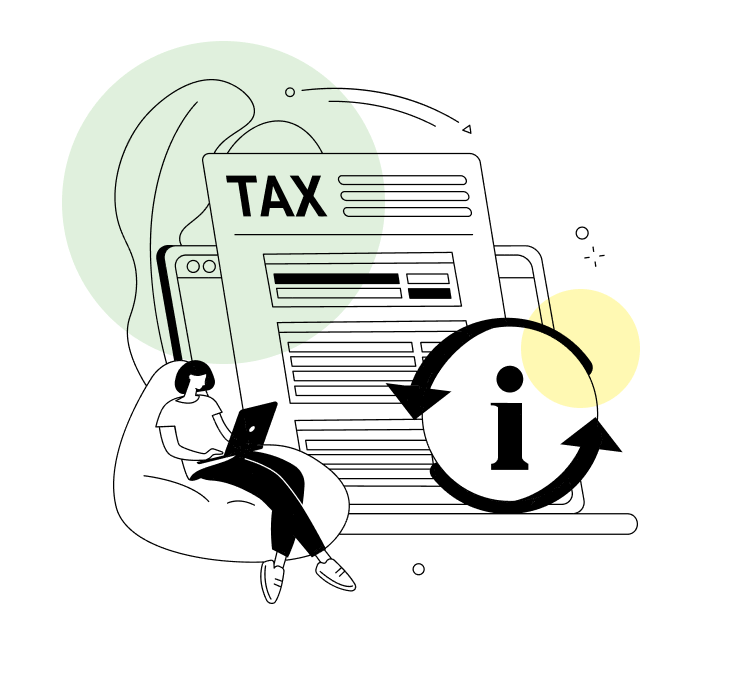Received a Letter From the CRA? Here's How to Get Help
TurboTax Canada
February 24, 2025 | 2 Min Read
Updated for tax year 2025

Unsure about what to do after receiving a Canada Revenue Agency (CRA) letter? Help is at hand. You might get a letter from the CRA about your notice of assessment, a notice of reassessment, a child benefit notice, or a simple request for information.
Let's take a closer look at why the CRA might contact you. Then we'll detail the kind of information they usually want and offer potential next steps.
Key Takeaways
- CRA letters may ask you for missing documents or information about income, deductions, credits, or investments.
- It is common for people to get a letter from the CRA about a notice of assessment, a notice of reassessment, or a child benefit notice.
- TurboTax has introduced two new features—Extended Expert Coverage (EEC) and Audit Coach—that can help you respond in the right way to a CRA letter.
Why the CRA might contact you
The CRA might ask for clarifications for several reasons. For example:
- Income tax review. The CRA might have received different income information from third parties compared to what was reported. It is often a routine check to ensure that the information you provided on your return is correct.
- High deductions. Unusual or high deductions relative to income or compared to industry norms can often trigger a review and correspondence.
- Random audit. Sometimes people are randomly selected for further review to ensure compliance with tax laws. This is part of a random selection by the CRA to ensure tax compliance all across the country.
Missing a deadline to reply, or failing to provide information the CRA requests, could mean the CRA adjusts your tax return without your involvement. If you don't respond promptly, you could pay more tax due to missed deductions. Also, hanging on to your income tax returns, receipts, invoices, and income forms for at least 6 years can be helpful in the event you receive a request letter from the CRA.
Common information the CRA may ask for
The CRA might ask for various documents to clarify your tax details:
- Income records. You may need to provide T4 slips for employment income, T5 slips for investment income, bank statements, or invoices and contracts, especially if you're a freelancer.
- Proof of spending. This includes receipts for business expenses like office supplies and travel, leasing agreements for vehicles or office spaces, and utility bills for home office claims.
- Deductions and credits. Be ready to provide receipts if necessary for charitable donations, medical expenses, and proof of eligibility for credits such as child care, education (T2202 form), or disability support.
- Investments. Have access to statements for brokerage accounts showing transactions and gains or losses, and documents related to real estate or security transactions.
Sometimes the CRA might ask for a written explanation of specific items on your tax return as well; for example, receipts to verify expenses.
Are CRA letters cause for concern?
If a CRA review letter asks for more documentation or clarification about certain entries on your tax return, it might just be a case of missing paperwork. The CRA may simply need that missing information to process your tax details accurately. Other reasons for the request may include these scenarios:
- The CRA often conducts routine reviews and audits. It's their job. They need to ensure the accuracy of tax returns at a national level. These can be random or based on triggers such as discrepancies in reported data or claims that don't add up.
- Multiple letters about the same issue—such as missed payments, or late payments—are a sign the CRA has concerns about your tax filings. This could suggest a deeper investigation into your tax affairs.
- A demand for payment is a little more serious. Especially if it specifies penalties and interest. Misreporting, underreporting, or late payment might lead to such requests.
- Letters that suggest intentional non-compliance—such as failure to declare income or claiming false deductions—can be even more serious.
Remember, getting a CRA letter is fairly common. Handling it calmly by gathering the requested information is usually the way to go. Just be sure to respond to the CRA quickly and thoroughly.
What TurboTax features can help with CRA requests?
What if you're confused about the next steps after receiving a CRA letter, or simply want to ensure you respond in the right way? In this case, it could be time to ask a trusted tax expert for guidance. TurboTax experts can support you in your conversations with the CRA so you understand all the implications.
The following TurboTax features can be useful for responding to CRA letters:
Extended Expert Coverage
Extended Expert Coverage (EEC) allows you to connect with a tax expert whenever you need to. You can stay on these calls for as long as you want and speak to a TurboTax expert as many times as you need across the year. For example, you could use EEC for an income tax query or to understand the tax implications of selling a house or some shares.
Audit Coach
Audit Coach is another new TurboTax feature to help you understand tax situations. You will still need to gather, prepare, and communicate directly with the CRA. But a TurboTax expert can be on hand to interpret a CRA letter and answer any other questions for you.
Other advisors
Accountants and lawyers are another option. They can provide assistance when handling CRA letters. Some may even help negotiate payment plans or dispute inaccuracies. Lawyers, in particular, should be able to make sure your rights and interests are protected when dealing with the CRA.
Responding to CRA letters
One final thought: If you get a letter from the CRA, be sure to take it seriously. Carefully review all the details and any requests for further information. Remember, you can always get more guidance from TurboTax experts through Extended Expert Coverage (EEC) or Audit Coach. These features can ease concerns and help you feel less overwhelmed if you do receive a letter or an audit from the CRA.
Solve tax queries quickly.
TurboTax is always here to help—before and after you file.
Related articles

© 1997-2024 Intuit, Inc. All rights reserved. Intuit, QuickBooks, QB, TurboTax, Profile, and Mint are registered trademarks of Intuit Inc. Terms and conditions, features, support, pricing, and service options subject to change without notice.
Copyright © Intuit Canada ULC, 2024. All rights reserved.
The views expressed on this site are intended to provide generalized financial information designed to educate a broad segment of the public; it does not give personalized tax, investment, legal, or other business and professional advice. Before taking any action, you should always seek the assistance of a professional who knows your particular situation for advice on taxes, your investments, the law, or any other business and professional matters that affect you and/or your business.









